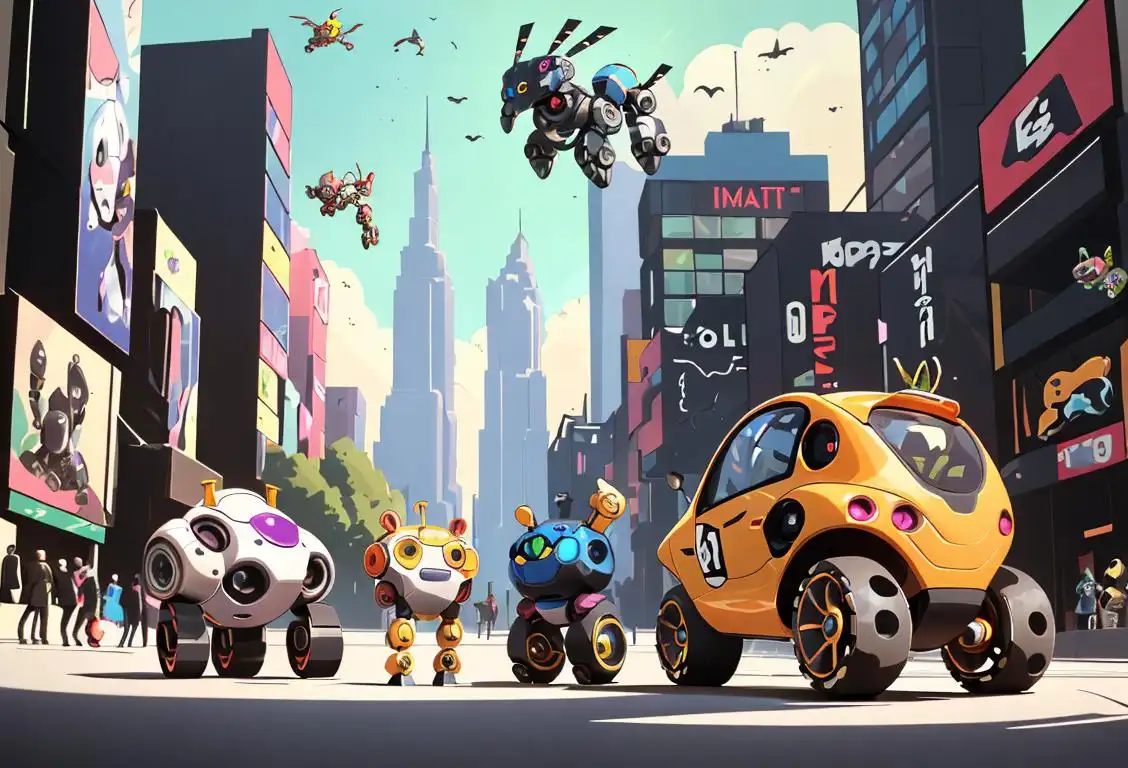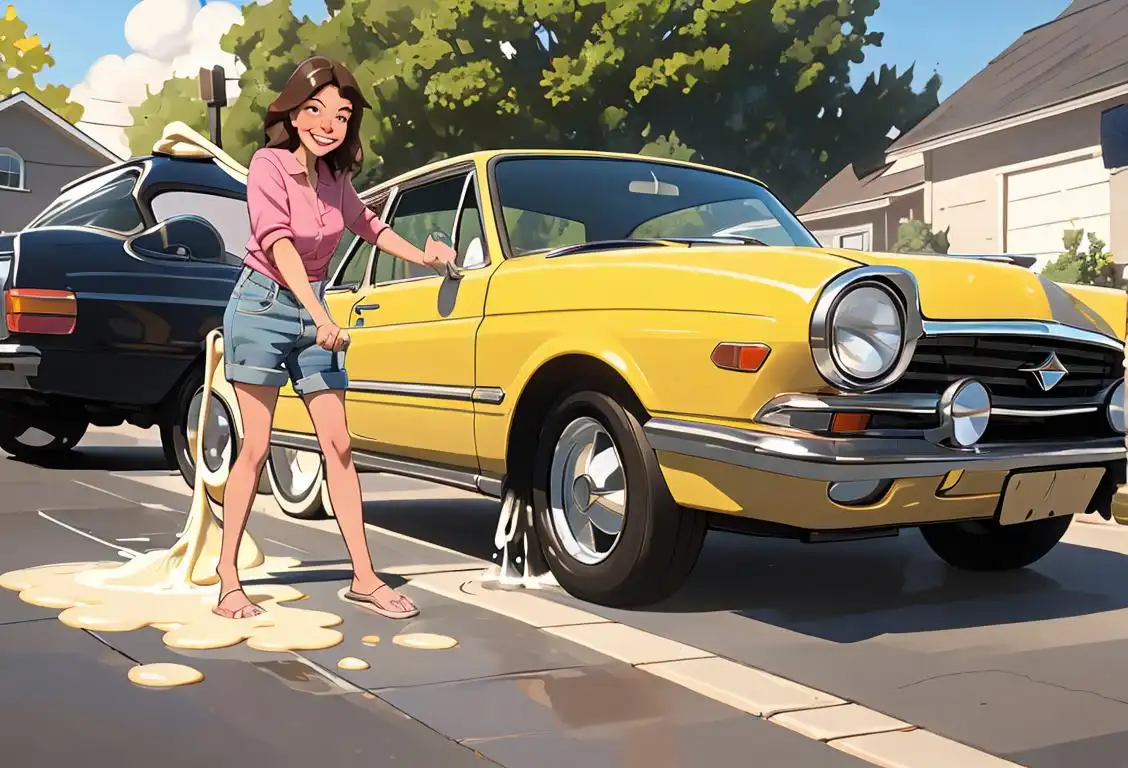National Robot Day

Romantic dinners, finance seminars, surfing contests - who wouldn't want a robot that could do it all? Fasten your digital seat belts as we dive into the cyber-centric world of National Robot Day- a day all about praising the metallic buddies who help us in ways we don't always see!
When is Robot Day?
It's national robot day on the 26th September.
The History of National Robot Day
Contrary to popular belief, National Robot Day isn't about replacing human relations, finances or entertainment with robotic alternatives. The internet stumbled upon this joyful day, giving out beeps and boops in September 2020, leaving a trail of online chatter around the digital world. With 7 mentions, robot fans marked their calendars for the perfect day to appreciate these hardy helpers.
Why Celebrate Machines?
We go through life surrounded by robots, from house-cleaning Roombas to the assembly-line automations that help build our cars. National Robot Day is the perfect day to acknowledge these tireless toiling tinkerers that support us in countless ways.
How to Rock National Robot Day
Try programming your own mini robot or watching a robotic-themed movie to appreciate the direct and indirect ways these automated assistants impact your life. Don't forget to share your favorite robot moments online with the hashtag #NationalRobotDay. We'd love to see you join the digital party!
History behind the term 'Robot'
1920
Coined the term 'robot'
The term 'robot' was coined by the Czech playwright Karel Čapek in his science fiction play 'R.U.R.' (Rossum's Universal Robots). The play, first performed in 1920, explores the theme of manufactured humanoid beings that eventually rebel against their human creators. Čapek derived the word 'robot' from the Czech word 'robota', which means 'forced labor' or 'drudgery'.
1941
Widely popularized in English
The term 'robot' gained widespread recognition in the English language with the publication of Isaac Asimov's science fiction story 'Liar!' in 1941. Asimov is renowned for his influential works featuring robots, and his stories played a significant role in shaping the public's perception of robots as autonomous machines capable of complex tasks.
1950
Establishment of robotic science
In 1950, mathematician and computer scientist Alan Turing introduced the concept of machine intelligence, which laid the foundation for the field of artificial intelligence (AI). The study of robots as intelligent beings and the development of algorithms to simulate human thought processes contributed to the growth of robotics as a scientific discipline.
1954
First industrial robot
In 1954, George Devol, an American inventor, patented the Unimate, the world's first industrial robot. Developed in collaboration with engineer Joseph F. Engelberger, the Unimate was an automated mechanical arm used for handling and manipulating objects in a factory setting. This invention revolutionized manufacturing processes and paved the way for further advancements in industrial automation.
1961
Term 'robotics' coined
The term 'robotics' was coined by Isaac Asimov in his science fiction short story collection 'I, Robot' published in 1961. Asimov extended the concept of robots and explored their ethical, social, and moral implications. 'Robotics' soon became the popular term used to describe the interdisciplinary field involving the study, design, and implementation of robots.
1979
First autonomous mobile robot
The first autonomous mobile robot, named 'Shakey', was developed by the Stanford Research Institute (SRI) International in 1979. Shakey had the ability to perceive its environment, plan its actions, and navigate through obstacles using a combination of cameras, sensors, and digital control systems. Shakey's technological advancements opened doors to the development of mobile robotics with applications in various industries.
Did you know?
The word 'robot' originated from the Czech word 'robota', meaning forced labor or work. Does that make our Roomba a 'robota' too?Tagged
awareness fun loved ones celebration celebrations tech AI robotics robots technologyFirst identified
26th September 2020Most mentioned on
26th September 2020Total mentions
7Other days
Robot Day
Ugly Sweater Day
Cheese Pizza Day
Senior Citizens Day
Car Wash Day
Stacy Day
Gary Day
Burrito Day
Only Child Day
Charlotte Day








